Energy efficiency refers to using less energy than usually required to perform a task. An energy efficient house design is an excellent way to reduce environmental impact and save costs. You can get any house to be energy efficient no matter when it was built. With the advancements in the field of architecture and design technology, modern houses are more energy efficient as compared to older houses. If you add energy efficient elements in your house, it would also add more value to the house. All the elements of an energy efficient house work together to create an environment friendly house with a low carbon footprint. Energy efficiency in interior design focuses on reducing energy consumption while maintaining a comfortable and functional living environment. You can optimize the layout of the space to maximize natural light penetration and airflow. Your furniture can be arranged in a way that allows for efficient circulation and minimizes the need for artificial lighting or excessive heating and cooling. Listed below are some ideas given by architects in Pakistan to create more energy efficient homes.
Optimize Insulation
Ensuring that the house is insulated minimizes heat transfer and maintains a comfortable internal temperature. Insulate the ceilings, walls and floors. If you are trying to save some money on electricity bills you can use polyurethane also known as thermocol. It has high thermal resistance and low thermal conductivity and helps cut down the electricity bill. High quality windows and doors with proper insulation can reduce heat transfer. Correct air sealing is necessary to complement insulation. Proper insulation reduces reliance on heating and cooling systems.
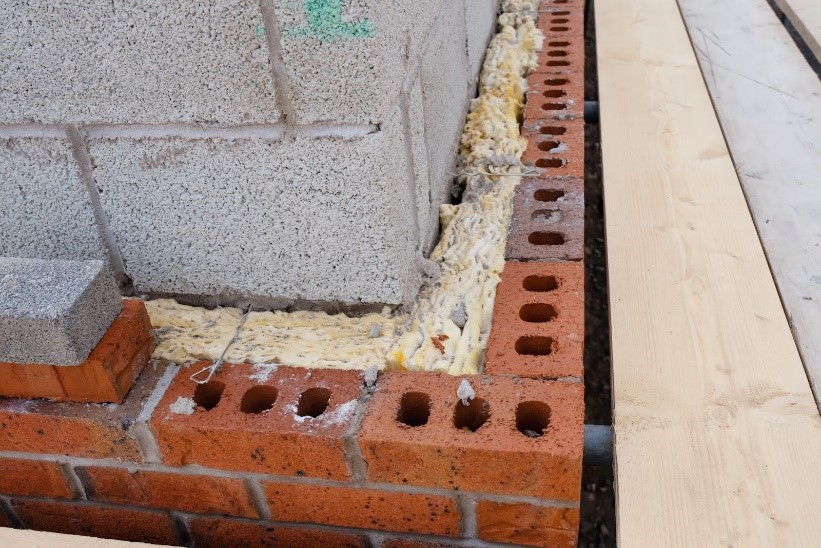
Energy Efficient Windows
Both glass and frame affect the thermal conductivity of the window. You can install windows with double or triple glazing, low emissivity coating and insulated frames to reduce heat gain or loss. They must be expertly installed for maximum efficiency. Consider window orientation to maximize natural daylight and passive solar heating. South facing windows provide natural light reducing the need for artificial lighting during the day. However, North facing windows receive the least direct sunlight throughout the day and provide more consistent lighting without significant heat gain. By adopting these energy efficient home ideas, you can enjoy a well-lit and well ventilated environment while saving on electricity bills.
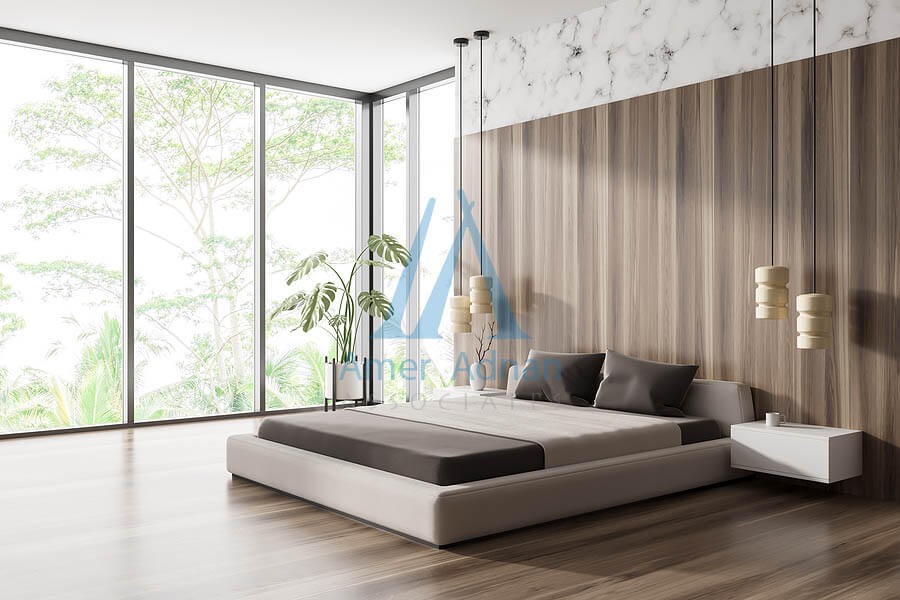
Smart Home Technology
You can control a smart home from anywhere with a single device using an internet connection. It would allow you to monitor and control appliances, thermostats, lights and other devices to enhance convenience, comfort, security and energy efficiency. It can help optimize energy consumption and reduce your costs in the longer run after the initial setup.
Efficient Appliances
In addition to reducing greenhouse emissions, energy efficient appliances would help you save money on energy bills and enhance the quality of life. The upfront cost of energy efficient appliances may be higher but savings on utility bills in the long run usually make them a worthwhile investment for you.
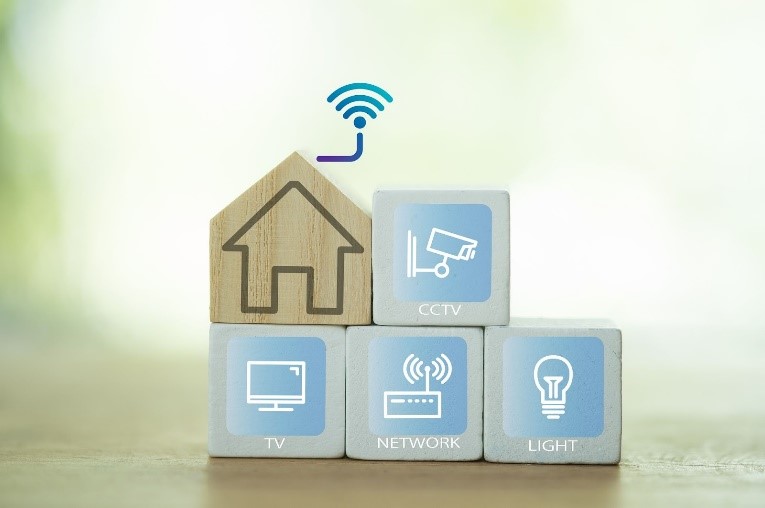
Efficient Lighting
Use energy efficient CFL or LED bulbs in your house. You can try incorporating natural light through floor to ceiling windows and skylights to reduce reliance on artificial light. Smart lighting systems will enable you to automate your lighting based on predetermined schedules or triggers. You can set up routines to turn lights on and off at specific times using sensors or timers, stimulate occupancy when you are away or sync lighting with sunrise and sunset. In addition, transparent shades can help since darker lampshades can absorb most of the light.
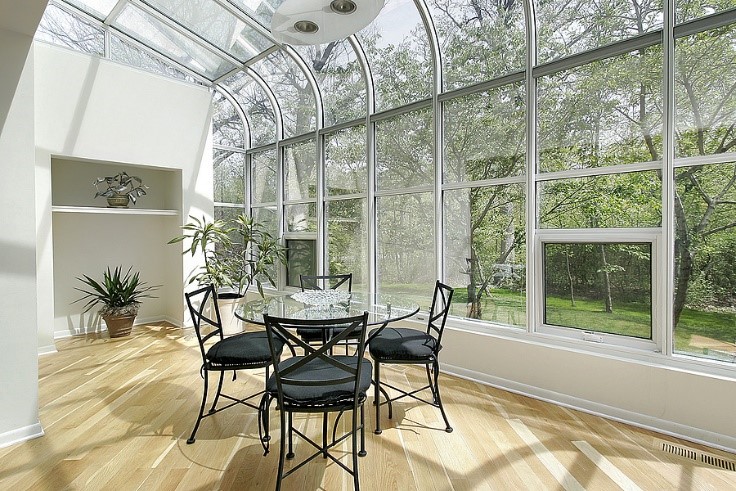
Energy Efficient Heating & Cooling
When it comes to energy efficient home ideas, optimizing heating and cooling systems is a top priority. A programmable thermostat can be used to control heating and cooling based on your requirements. You can opt for an energy efficient HVAC (Heating, Ventilation and Air Conditioning) system, but ensure proper sealing and insulation of ducts. A smart HVAC system allows you to control and monitor your heating and cooling settings remotely using a smartphone app. You can regularly maintain your HVAC system to ensure it operates effectively. Utilize natural ventilation strategies to cool your home.
Proper Ventilation
Design your home with proper ventilation to maintain good indoor air quality. Achieving energy efficiency through ventilation requires a well-designed system that balances the introduction of fresh air with minimizing energy losses. By aligning windows, doors and other openings with prevailing winds, a well oriented house can benefit from cross ventilation. ERV (Energy recovery ventilation) and HRV (Heat recovery ventilation) systems exchange heat between indoor and outdoor air, recovering energy in the process.
Renewable Energy Sources
To make your home energy efficient, you can incorporate renewable energy sources like solar panels to generate electricity rather than relying on fossil fuels. Similarly, an air source heat pump is a more sustainable option compared to traditional gas heating. It can be used for heating purposes and hot water, using the heat from outside air. When incorporating renewable energy sources, it is essential to evaluate factors such as availability, local regulations and potential financial incentives. Additionally, you can consider energy storage solutions like batteries, to store excess energy generated by renewable sources for use during periods of low generation and high demand.
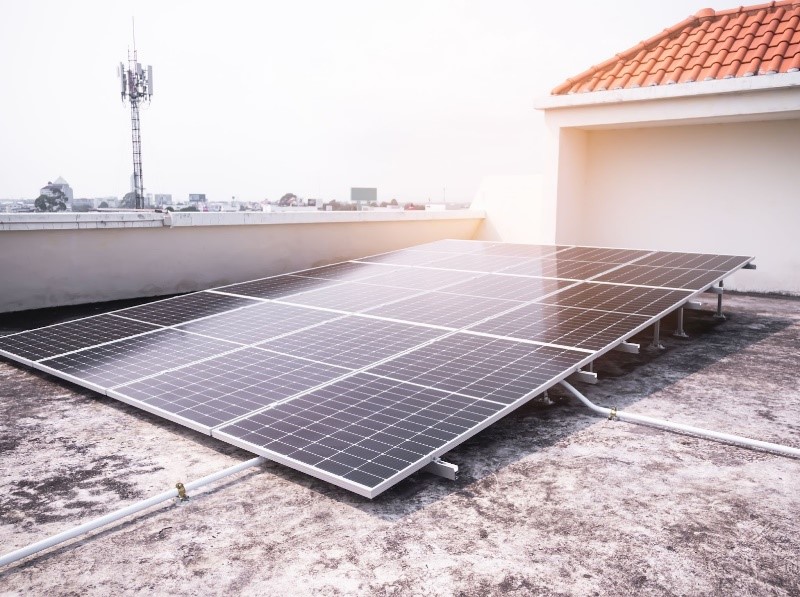
Efficient Water Usage
Energy efficient home ideas extend beyond heating and cooling systems to encompass efficient water usage. Installing low flow faucets, shower heads and toilets can minimize your water consumption. You can harvest rainwater for gardening and water efficient landscaping. Choose water efficient appliances. You can use smart irrigation systems or timers for your outdoor watering needs. These systems adjust watering schedules based on weather conditions and soil moisture, avoiding overwatering and reducing water waste at your home. Water is a precious resource and every effort you make to conserve it contributes to overall sustainability and energy efficiency of your house.
Landscaping Considerations
When it comes to energy efficient home ideas, considering efficient landscaping is a crucial aspect and should not be overlooked. Understanding the local climate, including temperature ranges, rainfall patterns and soil conditions is crucial when designing a house. It can have a significant impact on energy efficiency, comfort level and long term energy savings of your home. Proper orientation can optimize solar gain and sunlight can be utilized for the heating of water. In conclusion, embracing energy efficient home ideas is a crucial step towards a sustainable future while bringing numerous benefits to the homeowner. By implementing the ideas discussed above you can create a living space that maximizes efficiency, reduces environmental impact and enhances comfort and cost savings. Remember that this is a holistic approach that includes insulation, lighting, appliances, renewable energy, water usage and more. You can consult with top architects in Lahore for personalized guidance based on your specific need and location. By prioritizing energy efficiency, we can make a positive impact on our environment and create a sustainable future for the generations to come.
Written by : Gashia Imtiaz